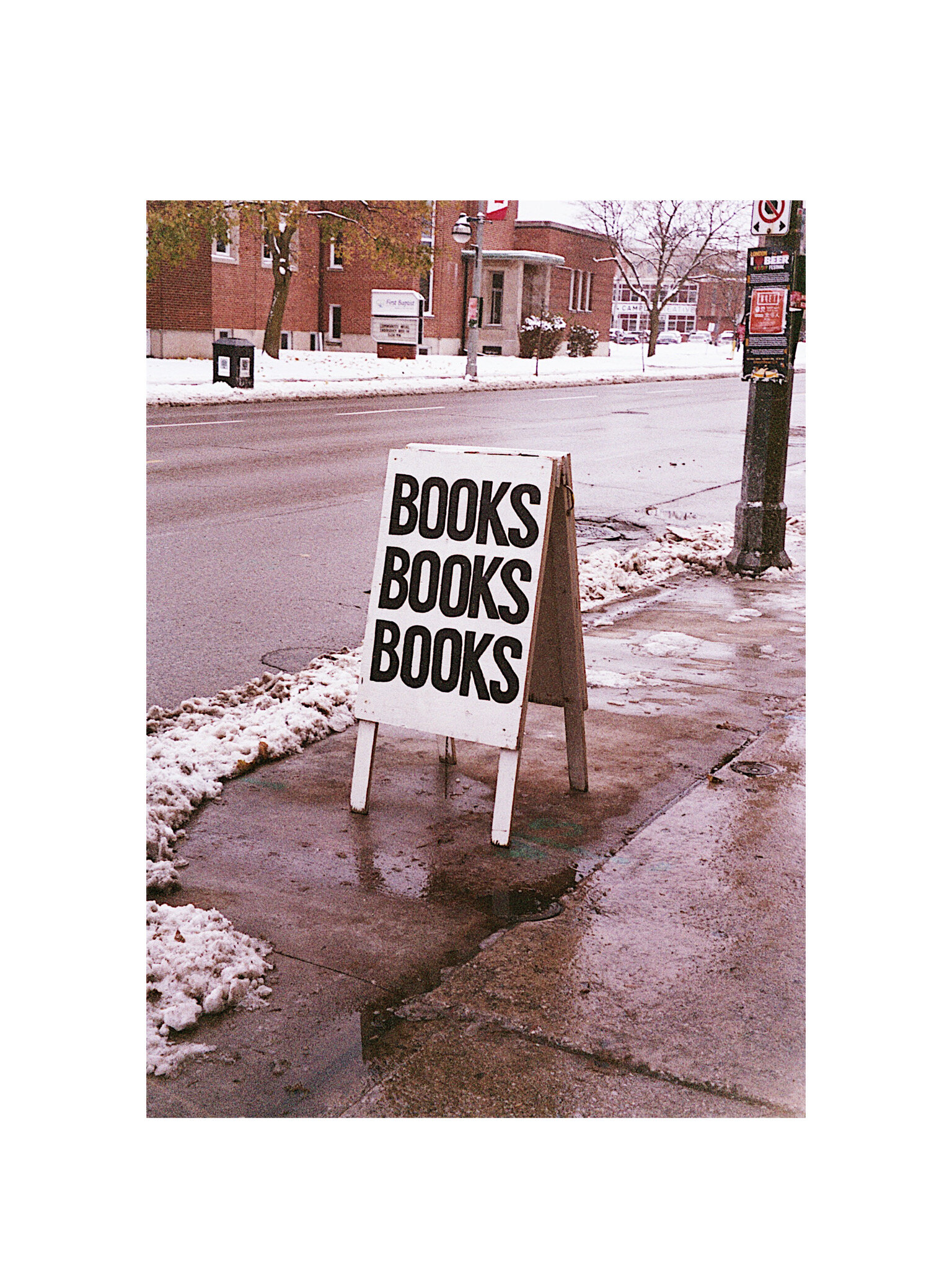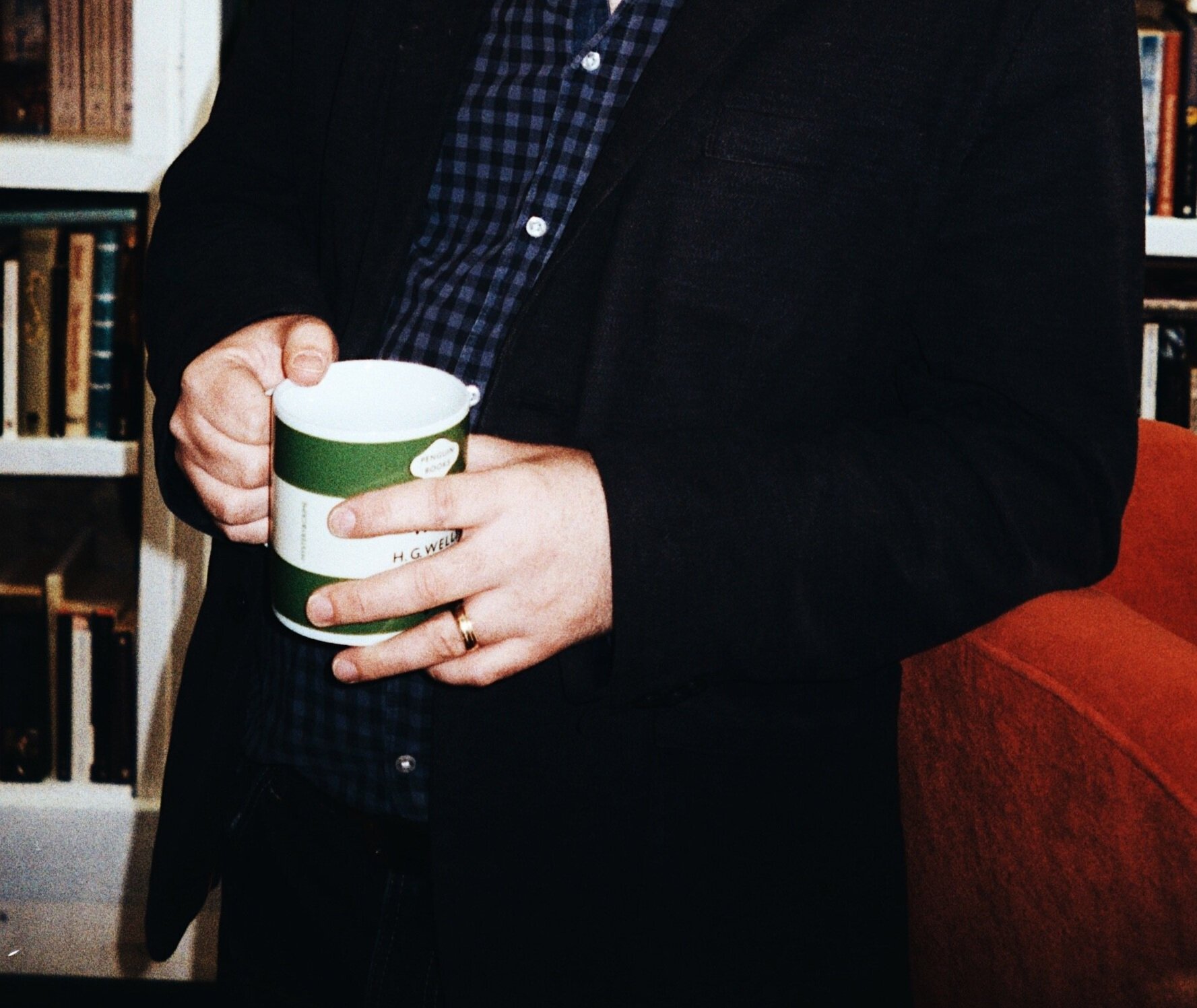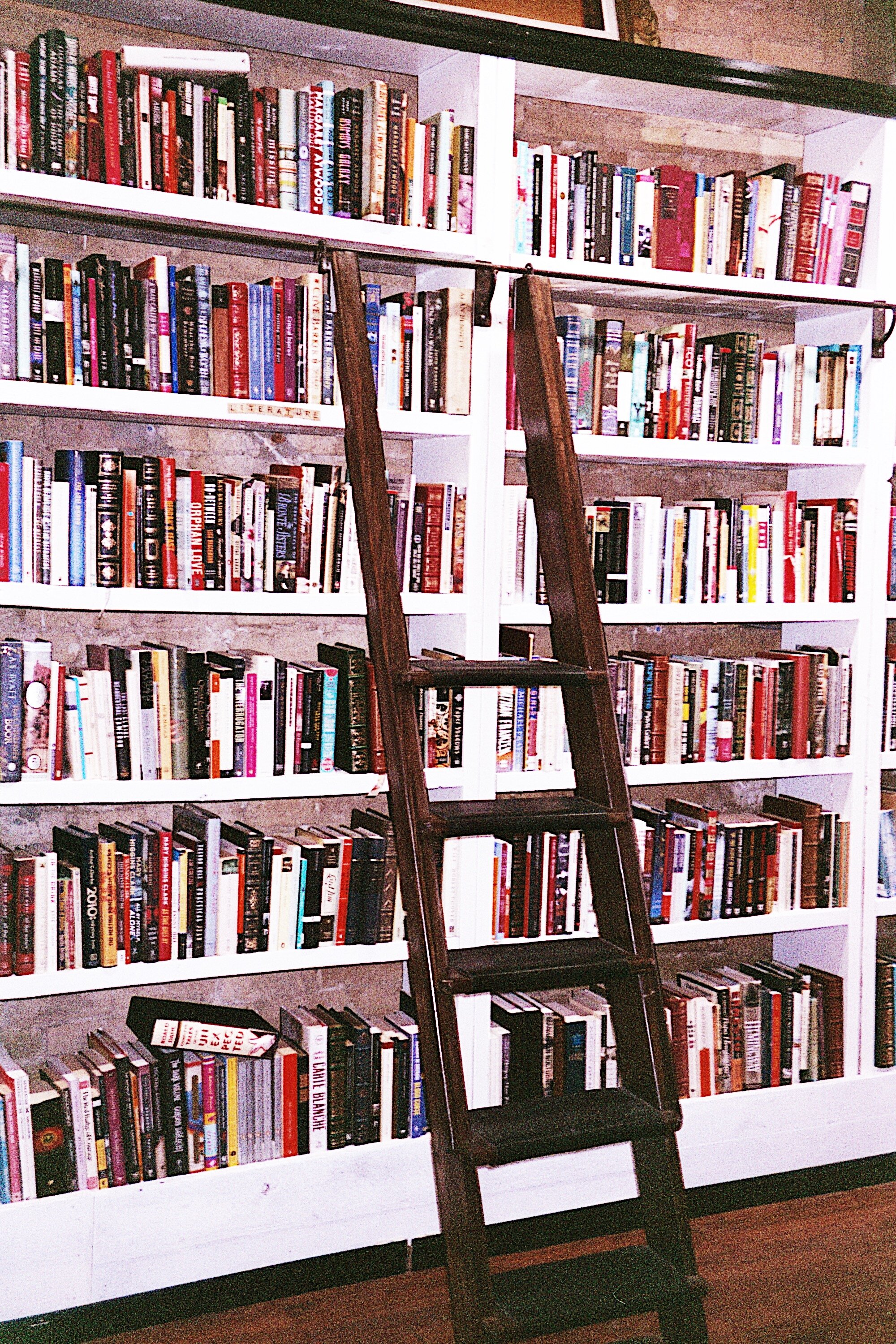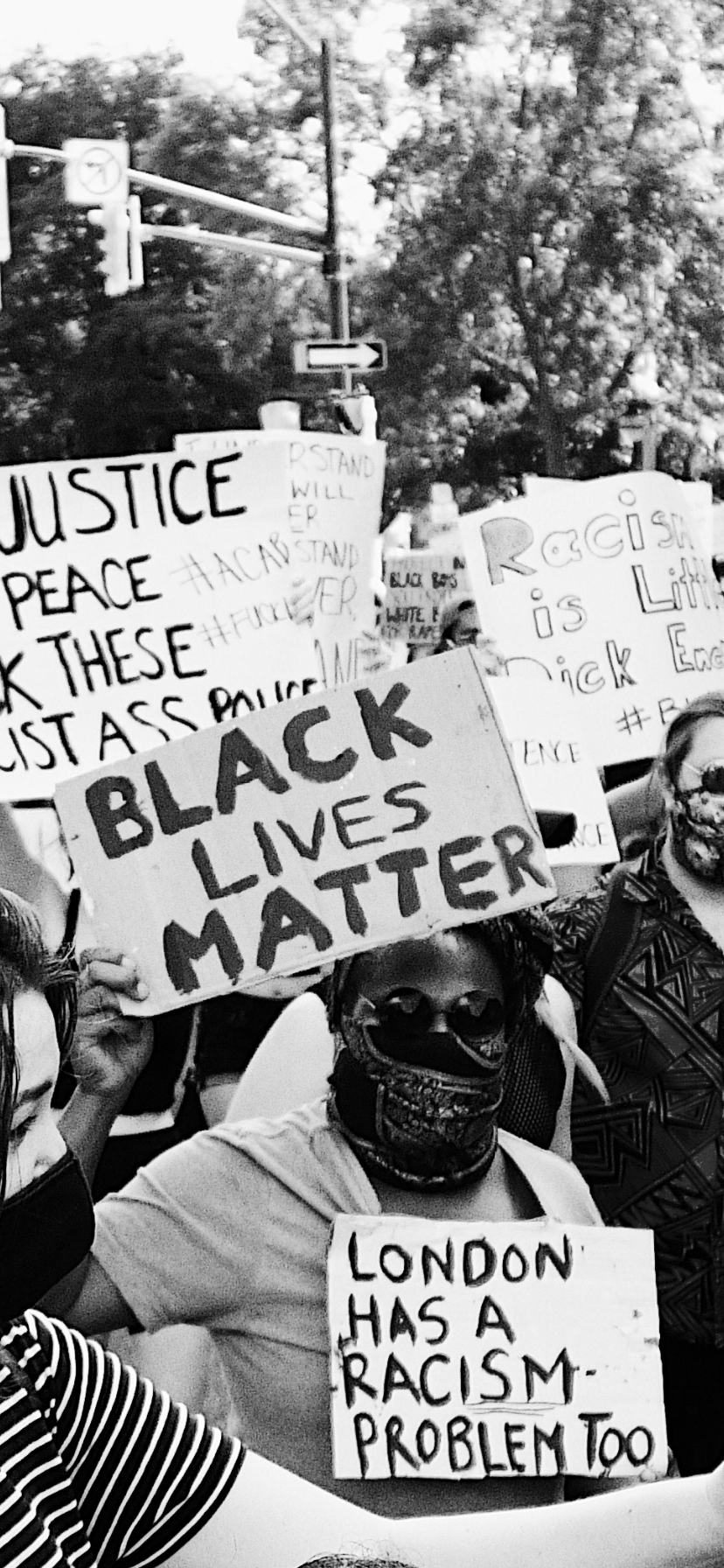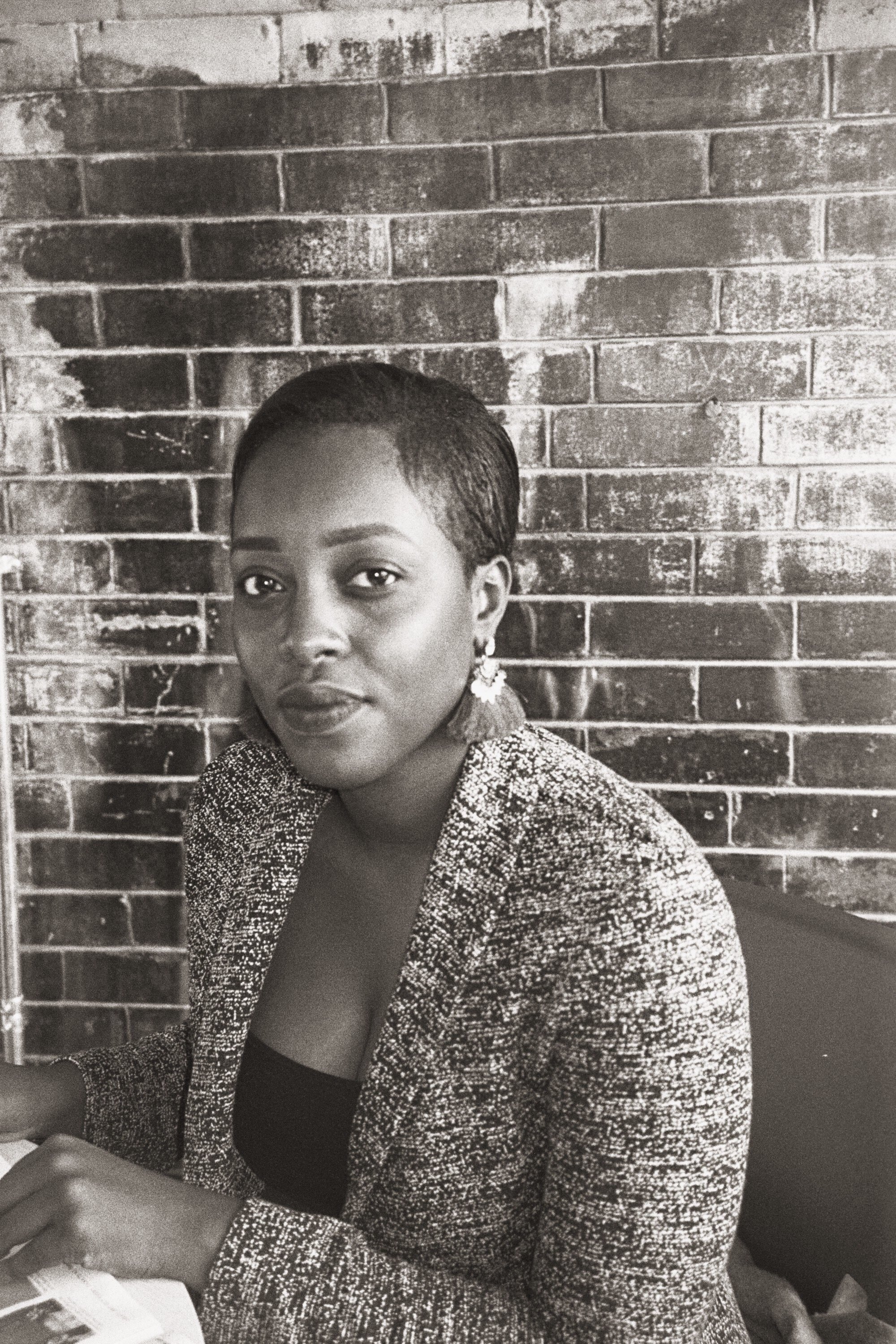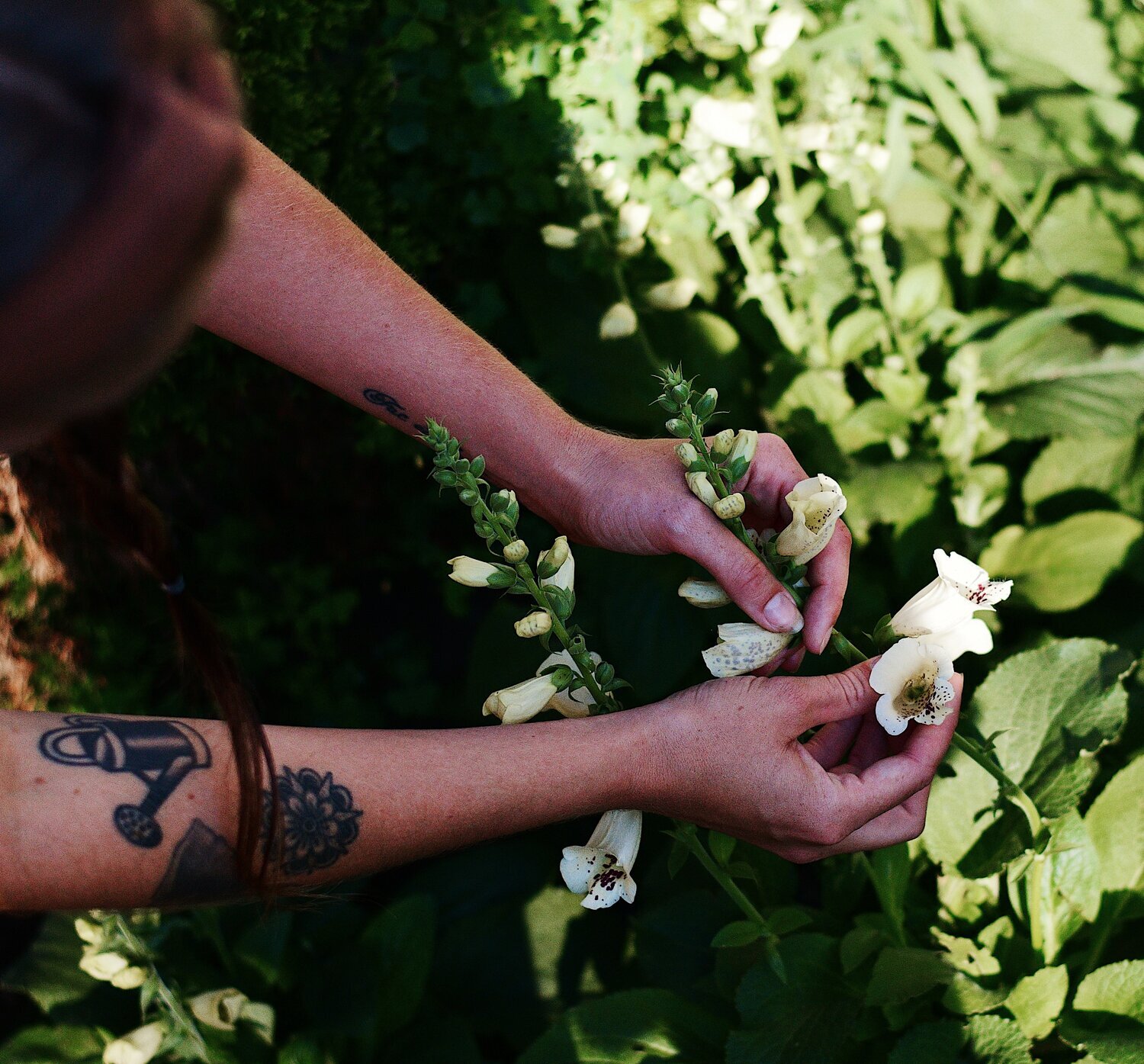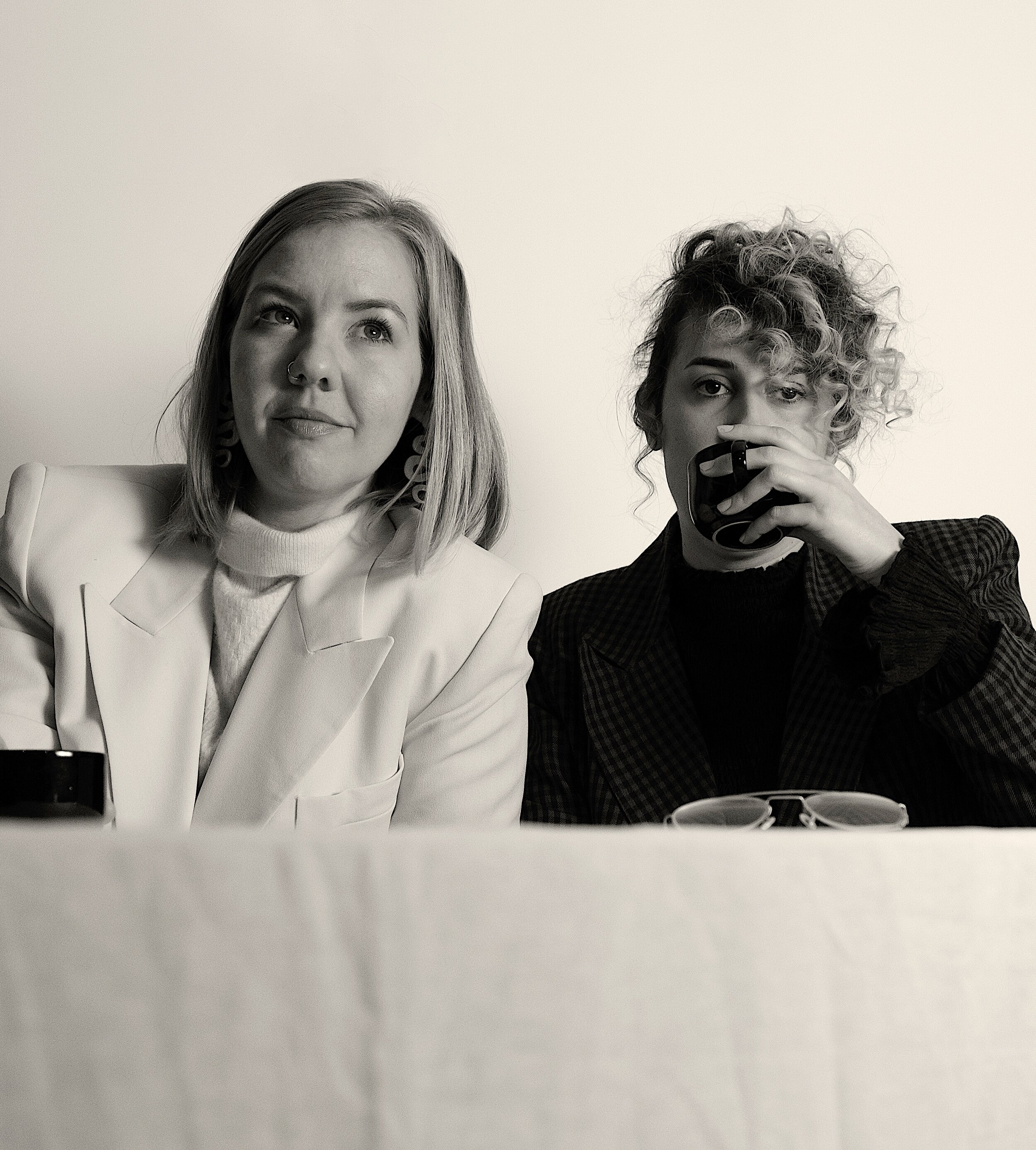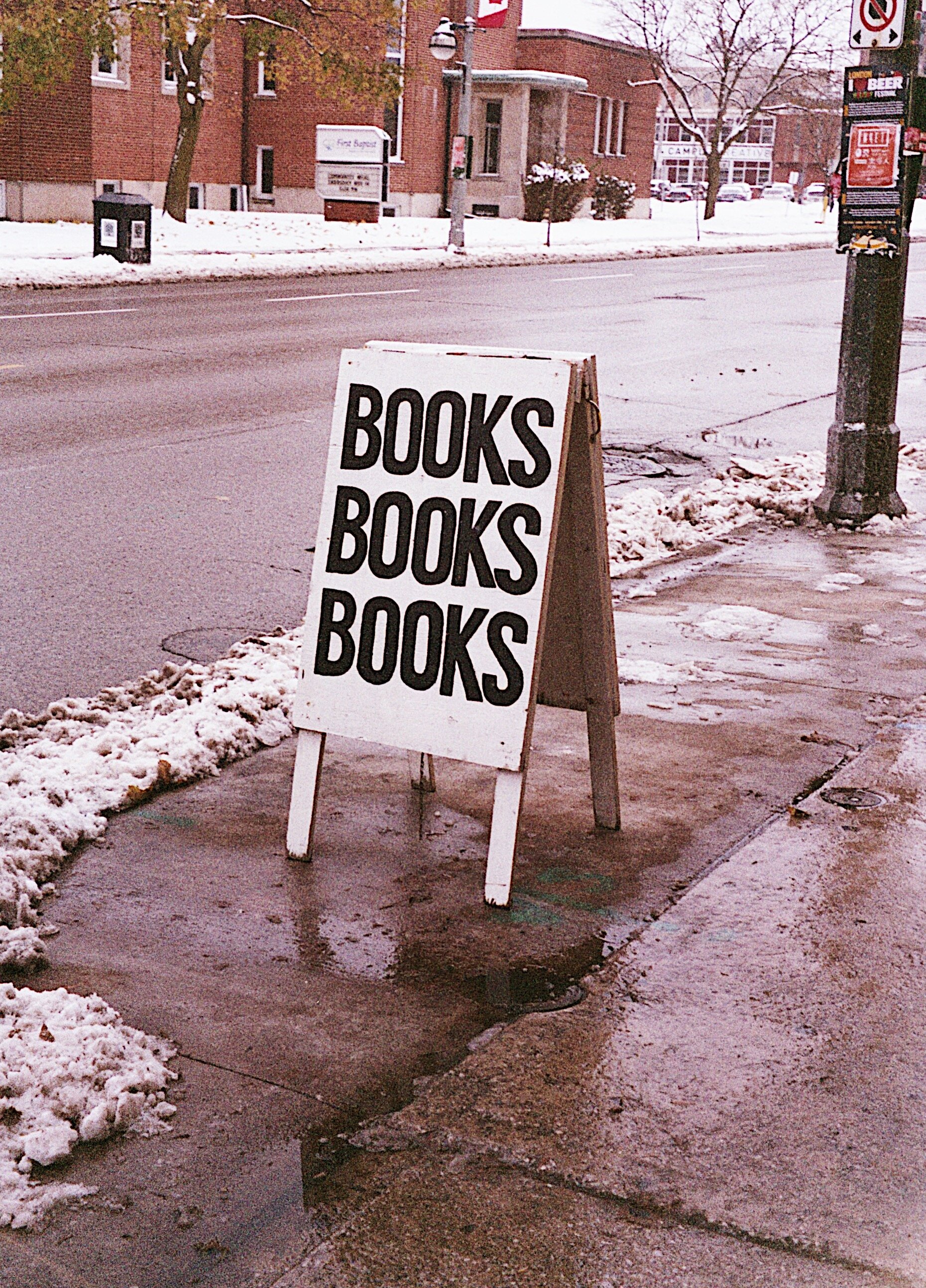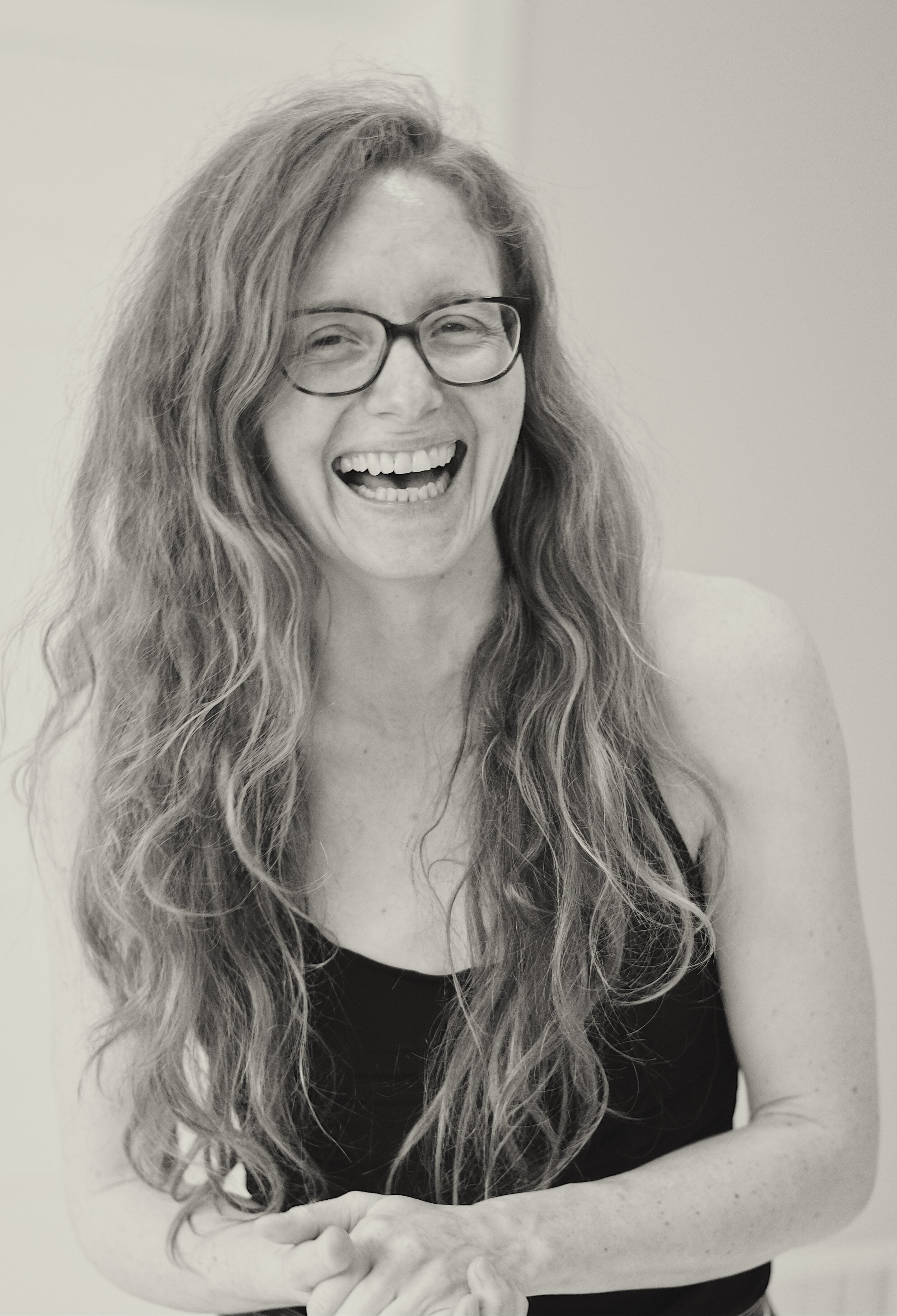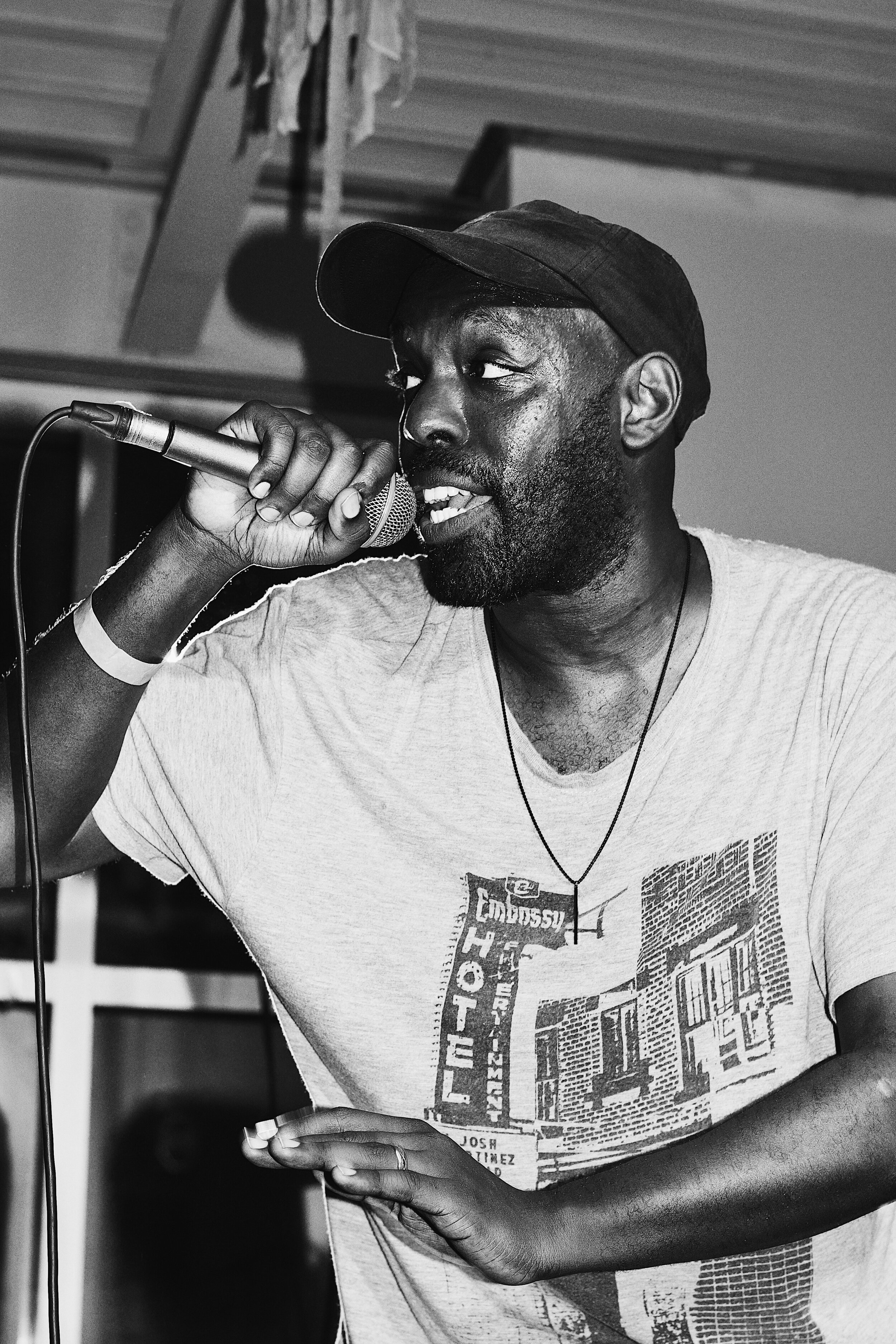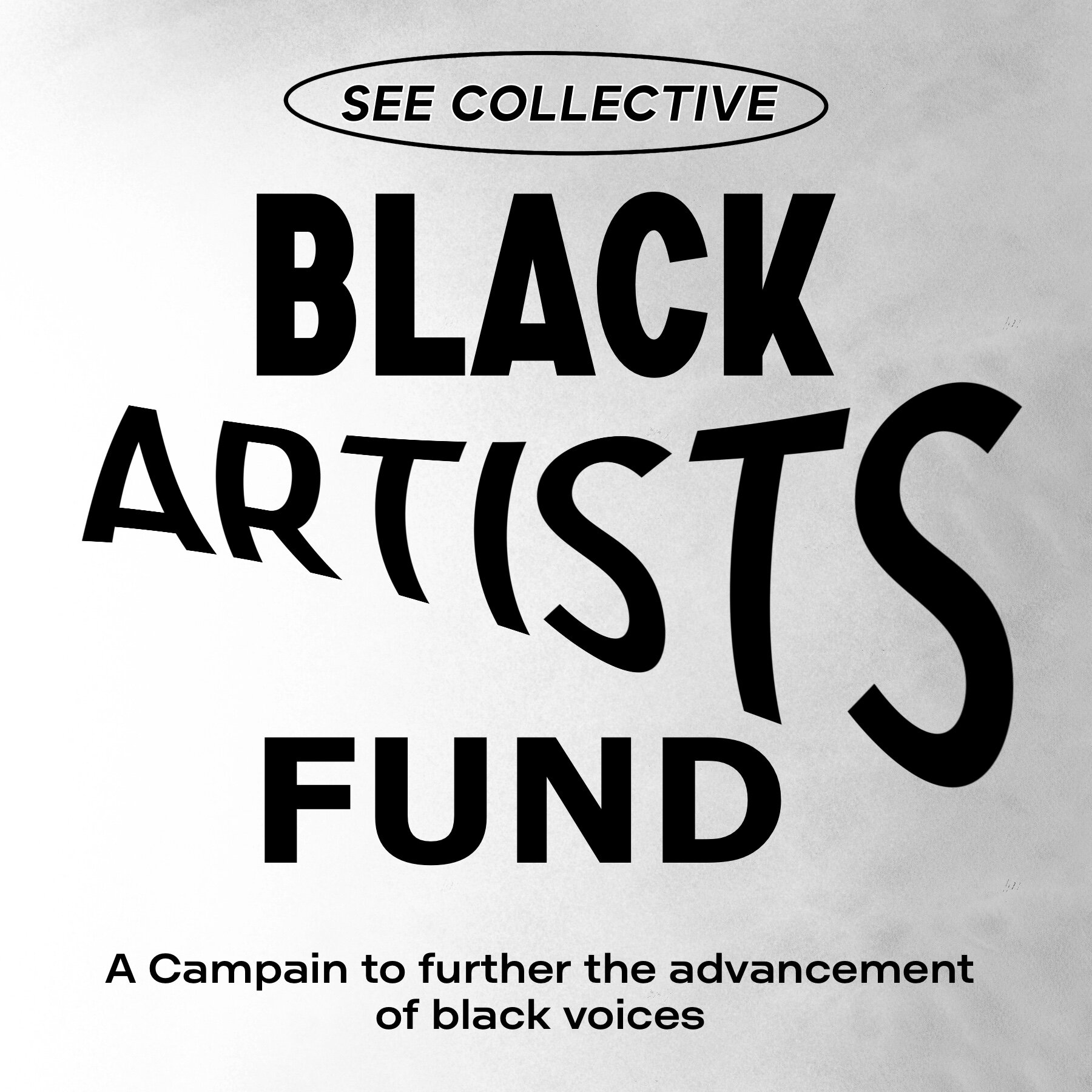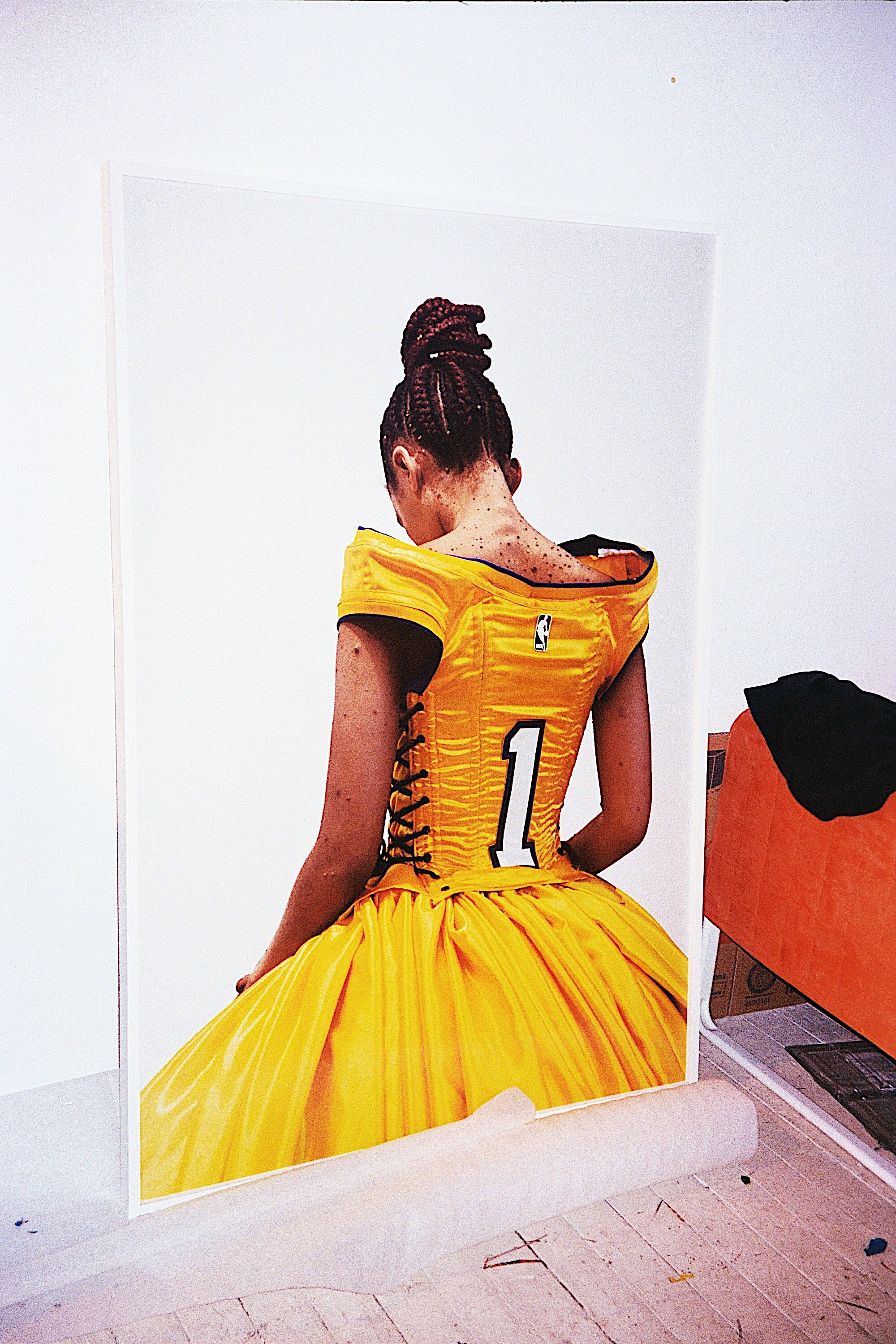In an era dominated by media giants offering reading material at the touch of a button, the resilience and staying power of the independent bookstore has been an unexpected delight. Founded in 2013 by husband-and-wife duo Vanessa Brown and Jason Dickson, Brown & Dickson is reanimating the book shop experience. The antiquarian book sellers believe that a bookstore should aim to transcend the often mundane retail experience. Their thoughtful outlook is a reflection of their appreciation for the colourfully creative community to which they belong.
Vanessa Brown is working at both scales as a writer and local historian. In her latest book The Forest City Killer, she daringly mines the details of a disturbingly bloody time in London Ontario’s recent history. Jason Dickson is a storyteller in his own right, unearthing hidden secrets from the past in his books Glenn Piano and The Hunt.
Together with their shop dog Snackers, (a very friendly beagle that greets you upon arrival,) the pair have operated Brown & Dickson for the past 6 years. From its humble beginnings as a home-based mail order book service, to expanding twice over and landing at the historical location of 567 Richmond street, the shop continues to enrich the community by holding regular events; readings, film screenings and album launches. This local treasure is a literary arsenal, containing extensive volumes of fiction, art, architecture, local history et al. At Brown & Dickson, the passion for London’s blooming arts culture simply cannot be missed.
How did you two meet?
VB: I met Jason when he was editing a regional poetry collection for teenagers. I sent in a poem, and he decided to include it. Wanna hear the cutest thing? I still have the letter of acceptance, and he still has my original submission. We worked together for years, and we got to know each other really well. I mean, I knew what his farts smelled like, right? And we talked each other through all of our relationship problems, including those leading up to our weddings to other people. I even drove Jason to his first wedding. He moved away, and little did I know, but as I was getting ready to leave my husband, he was already packed up and coming back to London after his marriage ended. When he came back we ended up connecting, finally, after more than twenty years of friendship.
JD: She was the smartest and most beautiful girl I had ever met, but we always had partners and it didn’t happen. Really, it was just me learning what an idiot I had been for not dating her sooner.
VB: Not that you didn’t try. He asked me out once and I laughed at him. I honestly thought he was joking.
JD: I wasn’t.
HOW DID BROWN & DICKSON COME TO BE?
JD: It was out of our apartment at first. It was just a mail order business of rare stuff.
VB: We did that for like 6-9 months and then moved to 211 King st. We did the Home County Folk Festival, we had a booth where we experienced this huge response and saw a lot of people, you know— friends, neighbours and so on in the arts community, and then we started thinking about getting a space. We eventually heard about the Novack’s space, the co-op there, so we joined.
“There’s something really unique about a used bookstore in that all the stock comes from the community. It’s not like you order it from a warehouse or a distributor. In that way, our store is a reflection of the reading habits of the people who live around us. It just seems like a natural extension to invite artists and creators into the space.”
JD: That was a magical moment too, we were just thinking about having a store and they approached us about working in this co-operative space and it was incredible. All of our friends were there, there was so much stuff we did together that we would never have done on our own. It felt like art school, it felt like a studio based art school, which was great.
How did Kangaroo Variety come about?
VB: It was basically Jason’s idea. Well, I came up with the name, which was originally the name of an arts newspaper that never came to be, but the concept was Jason’s. We were at Prince Al’s Diner brainstorming for ways to get people into our shop, which was at 121 Studios and was an unconventional space, just off the beaten path. We talked about all the different things we wanted to have— music, poetry, interviews, films, presentations, but the only thing we could think of was a magazine.
JD: But did we want to publish a magazine? Absolutely not. I mean, you have to be 100% committed to love doing it. So we thought, well, if we don’t want to do all that work, why not just perform a magazine. It’s one night and then it’s done. We asked the kids at 121 (Titus, Chuck and Savannah) who all said let’s do it! And that’s how it was born.
What inspired your transition away from Kangaroo Variety?
JD: We did 10 of them and we were really happy with number 10 and personally, I walked off the stage because I hosted that one and I was like, “We’re never going to do better than that”. It was just the bull’s eye. We could try and chase that for more issues, but that was just everything we wanted.
VB: That really put us in touch with the creative community and also it was a great transition for us with starting our business, and having been in a home business often when you are running a retail business where you are selling something, it can become very transactional. Working at 121 Studios really opened us up to understanding how our business could seamlessly interact with community arts, we can make a living but also contribute to the community and be recipients of other people's contributions and get to experience these amazing collaborations; which if you keep in a business mind all the time, you don’t really get to.
Realizing how much we could interact with the arts community was really emphasized when we were at 211 King.
JD: And it helps that we are writers too. We need a book shop like this as well. It is very easy to
just personally look at it and step away as an owner and say what I would want a bookshop to do in my town for me as a writer, but also as a book collector.
VB: We have to make the culture we want right? Everyone has a different role to play. I remember once when we were younger, you said something to me about a book you were writing and you went to find that book and it didn’t exist; that’s how I ended up writing the Hotel London book because I went to go research Hotel London and there was nothing about it, so I wrote that book.
You continue to engage the community with the events you host. Why is this important to B&D (or on an individual level rather)?
VB: There’s something really unique about a used bookstore in that all the stock comes from the community. It’s not like you order it from a warehouse or a distributor. In that way, our store is a reflection of the reading habits of the people who live around us. It just seems like a natural extension to invite artists and creators into the space. Plus, we’ve both been in the position of needing a place to get word out about our work. The store is an excellent platform. I really believe that as you grow and develop, you need to take people along with you, whether it’s your colleagues, those coming up in the scene, or mentors who might get written off as old-fashioned. It’s a living, breathing thing. A used bookstore is a part of the community, whether we foster that aspect or not, and I think you get a lot more joy out of fostering it.
JD: We’d be doing these events in the community one way or another. Vanessa and I have always organized things and put on shows or published zines, or done stupid stuff like the Christmas Charity single “It’s Christmas in London (and Nobody Cares)” which raised money for the Food Bank. I like getting ideas and then doing them immediately, not having to wait and get permission. So essentially, with the shop we now have a place to do all the things we’d be doing elsewhere, as well as having a steady home to invite people to collaborate with us.
Our business really grew on Richmond. Just as a raw salesperson observation, there is a weird line that you can’t cross selling books, like the moment you give the sense that you are trying to sell somebody something they deak. Unless they invite you like “I’m looking for a book,” then you can approach.
Why do you think that is?
JD: I think that people come to bookshops to be left alone. They come to meet other people like them, but they don’t want to meet someone like them and then have that person try to sell them something, you know? They actually just want to chat. For example, one of the most successful book dealers in New York in the 1940s, he's one of the first people to make a million dollars selling antiquarian books. He would come over to your house he would have a suitcase, he would chat with you for two hours, you would have a drink.
Tell us a little more about the history of this new location?
VB: The building is really part of an historic corner. Prince Al’s is where Jason and I had dinner on our wedding day, there’s this great photo of him sitting on their floor in the nineties smoking a cigarette, and the 16-year-old me still crushes over it. Our particular shop front was Elizabeth Noel, where me and my pals shopped for our hippy grunge dresses back in the day, and it was actually a bookstore in the 1980’s for children. Greg Curnoe designed the front for that shop. I think the old Victorian frontage is beautiful, and you’d have to really fight me to get me out of this spot.
JD: We’ve always loved the 567 Richmond Space, and so when it became available we jumped at it. There was around 30 seconds of massive anxiety and then, yup, let’s do it. We have no regrets. With this new space we can do what we do with much more room and resources. Also we have built a shop that is really for customers. I know that sounds cheeseball but no one wants to brush butts when they’re shopping. The old space was simply too small for a lot of people and that problem doesn’t exist here. So really, it is a space that more people feel comfortable in and that’s great for what we do.
It sounds like failure isn’t something that you’re particularly intimidated by. If that’s the case, why? And when did you arrive to this way of thinking?
JD: Vanessa and I have talked about this a lot. We live our life without a back-up plan. Basically if you have a back-up plan you’ll end up living it. So it’s not that failure isn’t intimidating, it is, but we don’t really have a choice and that offers something totally unique.
VB: What he said.
What are your thoughts on the community in London.
VB: I was a teenager in London in the 1990s and that was when I was discovering art, found out about art history— Greg Curnoe, James Reaney, like what? This used to be London, the idea that London could have such incredible creative minds in it was completely opposed to what I saw. Downtown London was a shit hole and today we have small businesses, art galleries and community events. I can not attend all the events happening, if I moved to this city and wanted to meet people in the arts community, I would have zero problem finding like-minded people in town, whereas when I was in my teens and my early twenties, you had to work to find what was happening in town. So yeah, progressing, doing better, things are wonderful. I remember working in a plus size store and there was this young girl, she was shopping the hip trendy stuff and I was like honey you are so lucky. When I was a woman of size in the 90s I had to make my own clothes, there was nothing, so people complaining about how there is no clothes for women of size, yes, there is stuff we have to work on but the acceptance is more there and now I can find a dress to wear and I don’t have to look like my mom, it’s like that. I feel like I am drowning in an awesome culture. I can find an art gallery, I can find a writing group and I can find musicians.
What has been the most Unexpected reward for pursuing this journey?
VB: Being an introvert in a front-facing business where you deal with a lot of exceptional eccentrics, really forces you to get rid of your aloofness and learn to be kind to people. It can be exhausting, but I think for me, the unexpected reward is learning how to be around and deal with people, and to find those secret special things about others that I would never have seen if I was just wrapped up in myself.
JD: Another place to nap. Seriously, I came into work three hours early once, watched an episode of Star Trek Discovery and napped for two hours. It was three of the best hours I’ve spent on earth.
“Vanessa and I have talked about this a lot. We live our life without a back-up plan. Basically if you have a back-up plan you’ll end up living it. So it’s not that failure isn’t intimidating, it is, but we don’t really have a choice and that offers something totally unique. ”
What are you looking at and thinking about these days?
VB: I’ve been playing shit tons of Red Dead Redemption Online. I love the gritty but escapist world of the Old West they’ve created. I just got my metal detector, so I’m going around finding lost necklaces and shooting deer. It’s awesome. When I’m not using that to distract me, I’m just thinking about serial killers.
JD: Local history, demonology, regional plant life. Also, how I can get Vanessa off the PS4 so I can play The Witcher 3?
Speaking of local history. Your book 150 Cultural Moments outlines Culture moments in the context of London Ontario. What would you say was your favorite ‘moment’ to uncover?
VB: I really enjoyed finding out that Kim Mitchell’s song Patio Lanterns is not about Call the Office. My favourite article to write was about the Neo-Regionalists, connecting new London art to old, but that wasn’t the funniest. We got in a bit of a tiff with our editor over Justin Bieber. We wanted to write under the headline, “Justin Bieber is Born,” just the words “We’re sorry.” She wouldn’t go for it and made us actually research him, so that whole thing kind of backfired.
JD: Honestly my favourite part of the book was developing the themes of second-placeishness, and our own weird local lens. It wasn’t a specific moment exactly, but I did love working to really capture that Mellonville quality in our city, and the unique love we and folks like us have of their smaller towns. It’s not an easy thing to capture in a fresh way. But it is real and it is genuine and it’s very, very funny to Veebs and I.
Vanessa, Can you tell us a bit about Forest City Killer? The subject matter is intriguing. What ignited the interest in the subject or the story itself?
VB: The same thing captured my mind about FCK that has caught my attention for my last two books, which is that hidden, secret history under our feet. I’ve compared London to a paving stone— on top it looks pretty boring, flat, and utilitarian, but underneath is a whole other ecosystem. Our arts community is like that too. I love finding out that a friend I’ve known for years is actually a world famous photographer, or a recording artist, that has actually happened to me. People surprise you, and our city is just like any person. London might only ever achieve 80%, but it’s reliable, like that cousin who always gets too drunk at a wedding, and you have to love her for it.
What's one question you wished people asked you more often?
VB: Can I watch the shop so you can nap?
JD: Can I publish your book?




